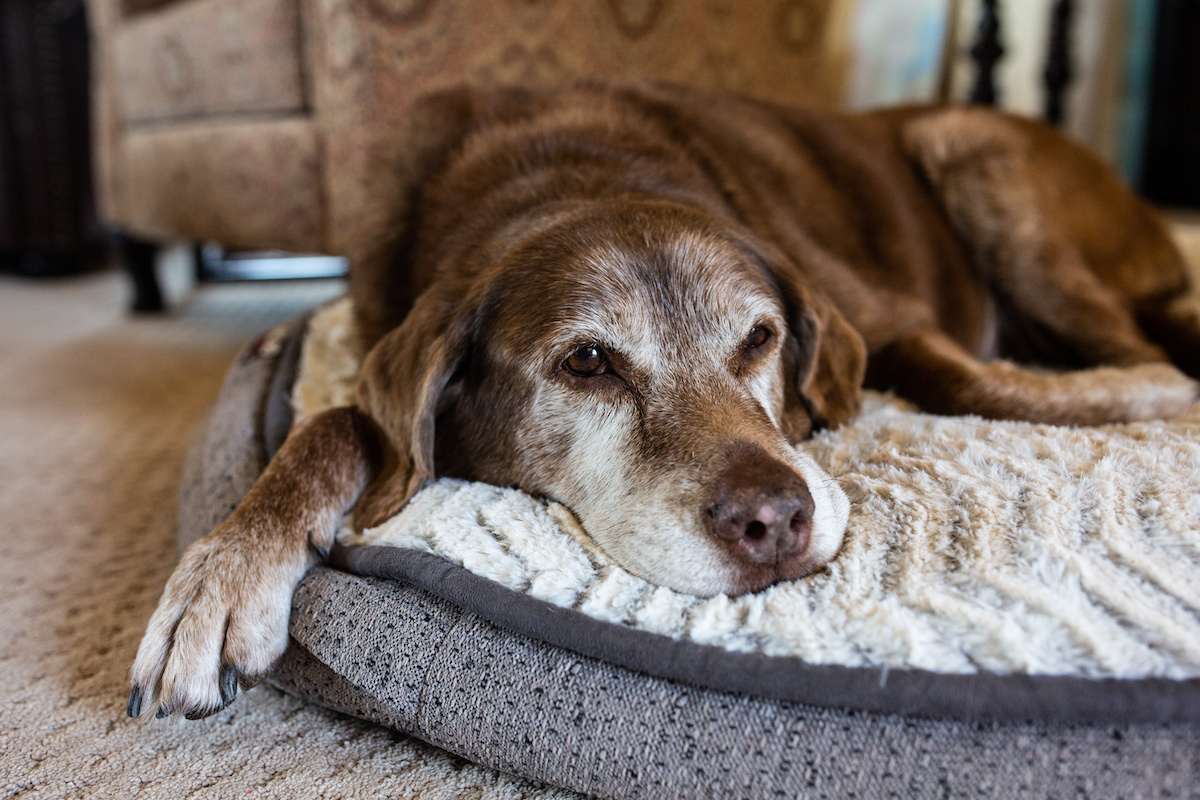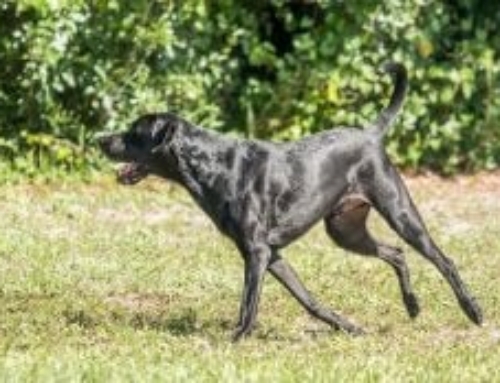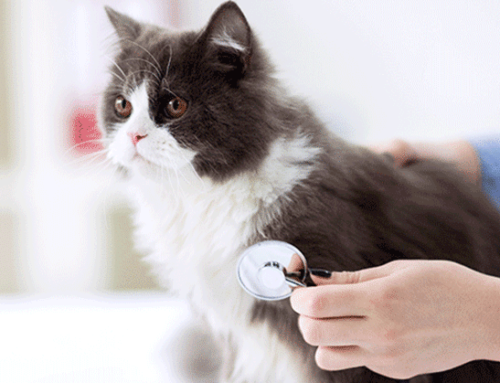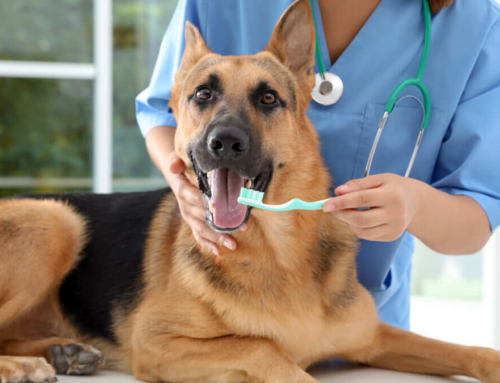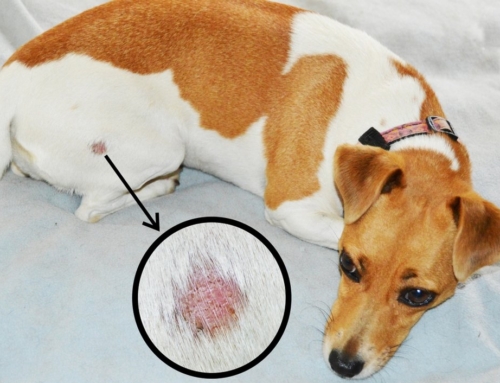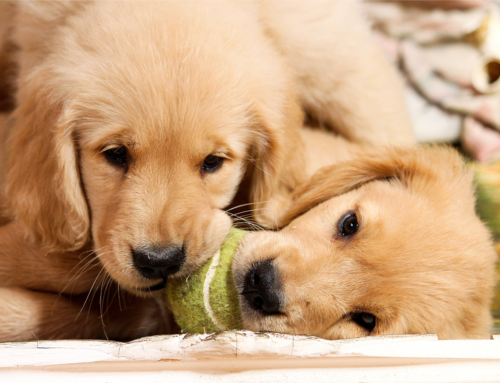Aging is a life stage, not a disease. As pets get older, many things tend to slow down and decrease. Animals will eat a bit less, be less active, and require more time sleeping to regain their energy.
Cats tend to be labeled as geriatric at 8-10 years of age, while a dog’s geriatric status depends on the breed; the bigger the breed the earlier they become old. As such, it is important to change the amount of food per serving and provide alternatives to ensure that geriatric pets are still getting their nutrients to meet their lower energy demands.
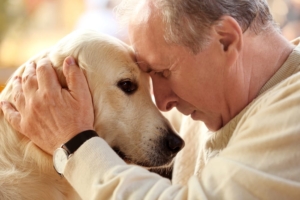 Like humans, dogs and cats will begin to develop behavioral and physiological changes to accommodate getting older. Their muscles and joints may feel stiff causing them to become less active. Their vision and hearing may not be as great as when they were younger due to them getting older. Muzzles and hair coats will begin to turn gray or white as human hair does over time. Furthermore, health issues begin to arise such as obesity, liver disease, and kidney failure contributed by a slower and less efficient metabolism. Thus, once these physical signs start to occur, a transition to senior diets will help slow down these progressions to provide elderly pets a healthy lifestyle.
Like humans, dogs and cats will begin to develop behavioral and physiological changes to accommodate getting older. Their muscles and joints may feel stiff causing them to become less active. Their vision and hearing may not be as great as when they were younger due to them getting older. Muzzles and hair coats will begin to turn gray or white as human hair does over time. Furthermore, health issues begin to arise such as obesity, liver disease, and kidney failure contributed by a slower and less efficient metabolism. Thus, once these physical signs start to occur, a transition to senior diets will help slow down these progressions to provide elderly pets a healthy lifestyle.
The most important thing is to maintain hydration. Geriatric pets will be more prone to dehydration as their body may not be able to retain water within their system efficiently. Thus, providing water into their diet and drinking habits will deter dehydration from occurring. Elderly pets may begin to be less active due to joint pain and a decrease in body mass, but an increase in fat; as such, it is important to provide them with calorie control options to ensure that they do not become obese and worsen their joint issues. In terms of protein, they will need a better quality of protein while maintaining the same quantity. By providing a better quality of protein, it will supply them with the correct energy amounts they need and maintain their ideal body weight. Whereas, increasing the quantity will cause obesity to occur to provide them with the correct amount of protein. Moreover, due to their increased chance of health issues such as kidney, liver, or heart diseases, fatty acids should be given to help prevent these issues from happening and may help prevent cancer as well. An example of fatty acids that can be given to pets is omega 3.
Constipation may occur on a regular basis meaning that higher fibre diets should be given to older pets to help their bowel movements. In addition, specifically for cats, kidney disease becomes an issue as they age. Kidney disease can be slowed down by providing cats lower phosphorus diets and more water-soluble vitamins like vitamin B. Both minerals and vitamins play a crucial part in slowing down kidney disease progression and allowing cats to live a long and healthy life.
Aging is something that happens to all living things. Just like us, pets will get older and like their owners, it is up to us to provide them with diet changes to ensure that they are still taken care of and be given a healthy lifestyle. By providing them with a better and more palatable diet, we can continue to live with our furry companions for as long as possible.

